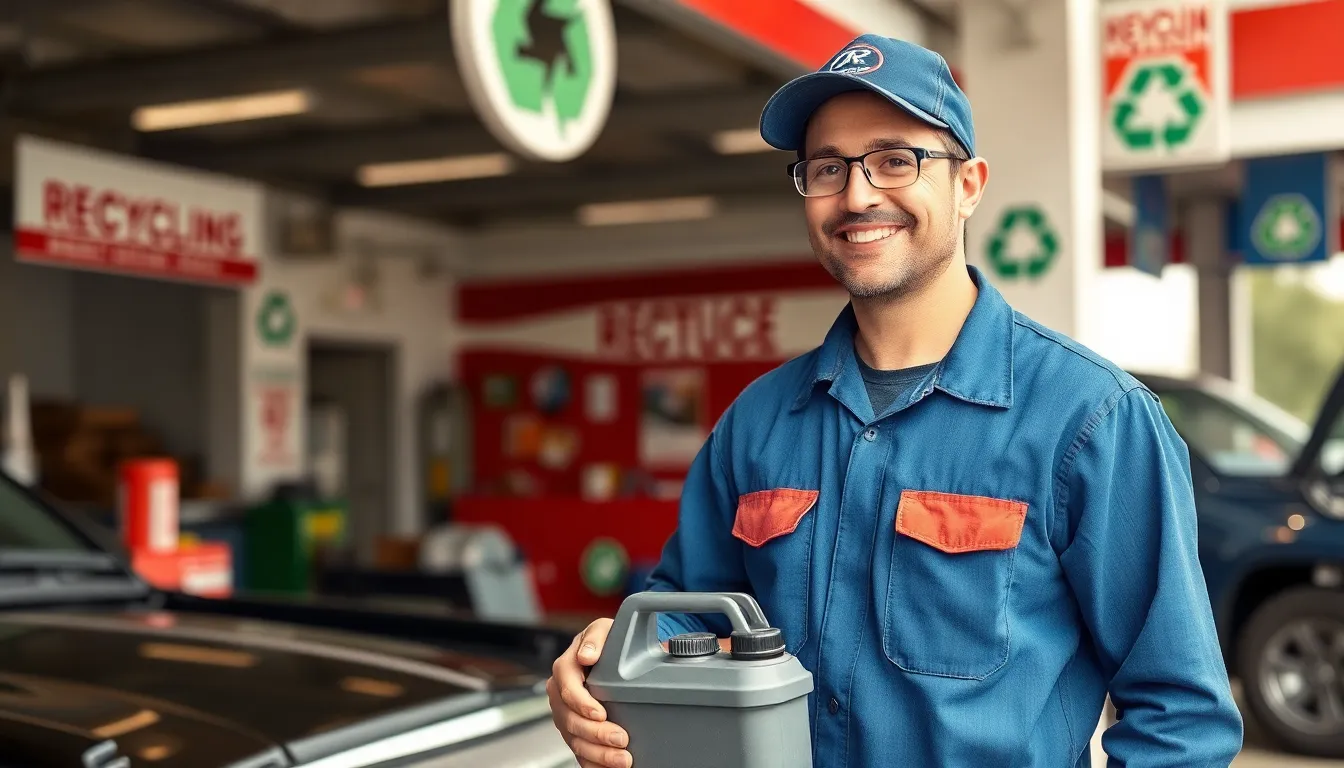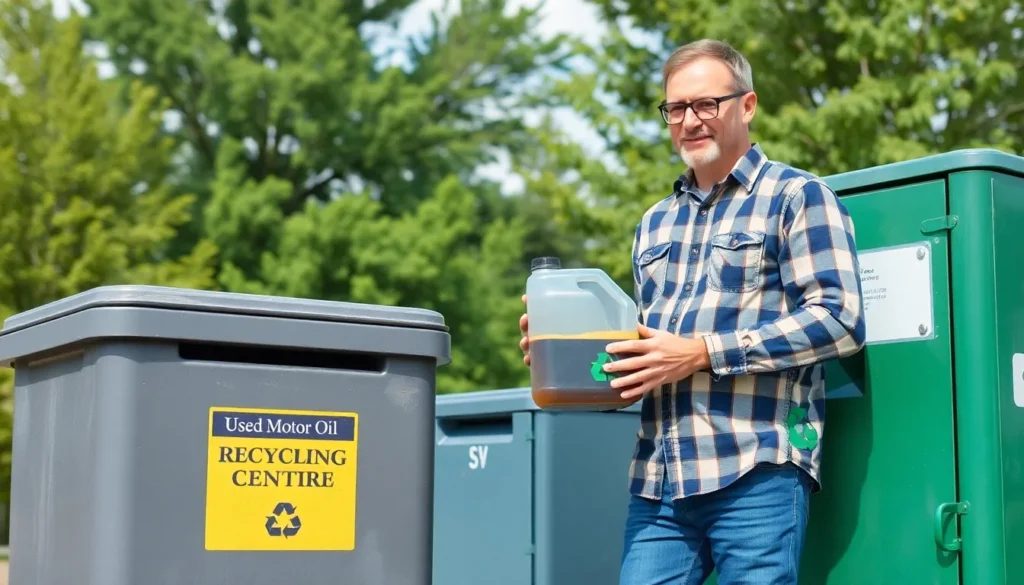Every time someone changes their car’s oil, they face a dilemma: what to do with that used oil? It’s not just a sticky mess; it’s a potential environmental hazard. Luckily, finding waste oil disposal options nearby isn’t as hard as finding a parking spot at a crowded mall. With the right information, anyone can turn that greasy problem into a clean solution.
Table of Contents
ToggleUnderstanding Waste Oil
Waste oil refers to any leftover oil that has been used, including motor oil and lubricants. Used oil can contain heavy metals, chemicals, and other contaminants that pose risks to the environment and human health.
What is Waste Oil?
Waste oil includes petroleum-based and synthetic oils that have undergone significant use. It encompasses oil generated from vehicles and machinery, such as motor oil, gear oil, and hydraulic oil. After an oil change, this product requires careful handling. Contaminants often mix with the oil, including dirt and oil additives. Understanding these aspects helps in recognizing its environmental impact, as improper disposal can lead to soil and water contamination.
Importance of Proper Disposal
Proper disposal of waste oil safeguards the environment and protects human health. Used oil can pollute water systems if disposed of incorrectly. It poses risks to wildlife and ecosystems when released into the environment. By recycling waste oil, valuable resources can be recovered, reducing the need for new oil extraction. Responsible disposal practices, such as taking waste oil to recycling centers, ensure harmful effects are minimized. Addressing waste oil disposal correctly plays a critical role in maintaining environmental integrity.
Options for Waste Oil Disposal Near Me

Finding proper waste oil disposal methods is straightforward. Several options exist for safe and environmentally-friendly disposal.
Local Recycling Centers
Local recycling centers often accept used motor oil and lubricants. Many of these centers provide drop-off locations specifically for hazardous materials. Residents should check with nearby facilities to confirm what items they accept. Some recycling centers may even offer incentives for recycling oil. Typically, these locations ensure that waste oil is processed safely and responsibly, reducing environmental risks.
Automotive Service Stations
Automotive service stations commonly offer waste oil disposal services. Mechanics are often equipped to handle used oil, allowing customers to leave their waste oil during oil changes. Many stations recycle oil instead of disposing of it improperly. It’s advisable for individuals to contact local service stations first to inquire about their policies. Proper oil disposal at these stations benefits both the environment and the community.
Environmental Impact of Improper Disposal
Improper disposal of waste oil poses significant threats to both the environment and public health. Understanding these impacts is essential for responsible management.
Effects on Soil and Water
Contaminants in waste oil, like heavy metals and toxic compounds, can seep into soil. This leads to land degradation, impacting plants and wildlife. Additionally, when waste oil enters waterways, it degrades water quality. Aquatic life suffers from exposure to these pollutants, disrupting ecosystems. Chemicals in the oil can accumulate in the food chain, posing risks to human health. These factors highlight the urgency of proper waste oil disposal practices to protect natural resources.
Legal Consequences for Individuals and Businesses
Improper waste oil disposal carries serious legal repercussions. Individuals may face fines for violating environmental regulations. Businesses risk penalties and damage to their reputation for not adhering to safe disposal guidelines. Organizations such as the Environmental Protection Agency enforce strict laws regarding hazardous waste. Non-compliance can result in costly lawsuits and heightened scrutiny from regulatory bodies. Ensuring responsible disposal methods is not only environmentally sound but also legally prudent.
Steps to Dispose of Waste Oil Properly
Disposing of waste oil properly requires careful collection and identification of suitable disposal facilities. Following specific steps ensures environmental safety and compliance with regulations.
How to Collect Waste Oil
First, gather necessary tools like a funnel, container, and absorbent materials. A proper container should be leak-proof and labeled for easy identification. When draining oil from a vehicle, aim for minimal spillage by positioning the funnel directly into the container. Allow the oil to drain completely before sealing the container. Store the collected oil in a cool, shaded area, maintaining a secure lid on the container. Avoid mixing waste oil with other substances, as this complicates the recycling process.
Finding a Nearby Disposal Facility
Begin by searching for local recycling centers that accept waste oil. Most areas possess designated drop-off sites for hazardous materials, often managed by municipal waste services. Automotive service stations frequently provide disposal options during oil changes, accommodating both customers and non-customers. Check online resources for directories listing facilities in the vicinity. Reach out to local authorities or environmental agencies for additional guidance and recommendations. By identifying suitable disposal points, individuals contribute to a cleaner and safer environment.
Proper waste oil disposal is essential for protecting the environment and maintaining public health. By utilizing local recycling centers and automotive service stations, individuals can ensure their used oil is handled responsibly. This not only prevents contamination of soil and waterways but also supports the recycling of valuable resources.
Staying informed about disposal options and following best practices makes a significant difference in minimizing environmental impact. It’s crucial to take action and choose responsible disposal methods to contribute to a cleaner, safer community.







